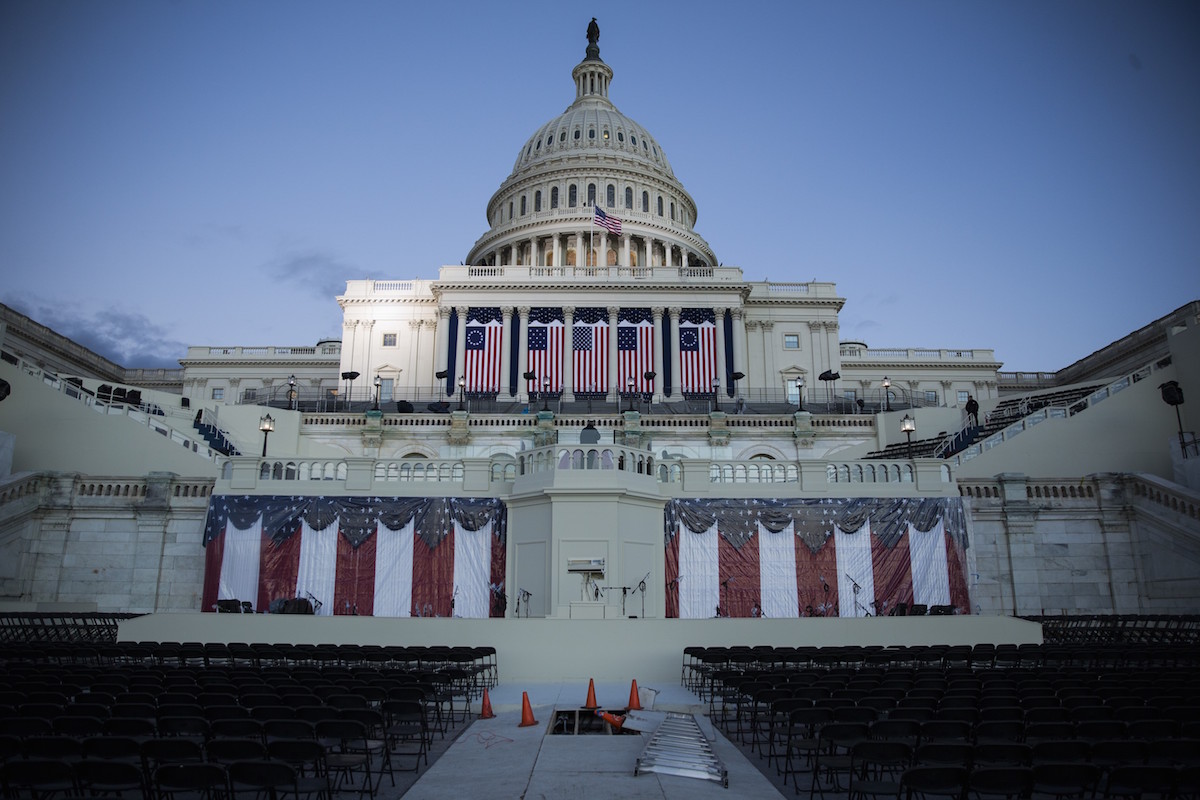
For nearly a century, American presidents have been launched into their first terms in office—as Donald Trump was on Friday—with one particular question: What will be accomplished during the first 100 days?
The question is already in the air during the campaign season, and sure enough Trump has followed the format. During his nomination acceptance speech in July he said that he was “going to ask every department head in government to provide a list of wasteful spending on projects that we can eliminate in my first 100 days,” and he followed that up with a post-election announcement of first-100-days goals.
The tradition of looking to that period as a presidential milestone dates back to 1933, when Franklin Roosevelt focused on his first 100 days in office in order to underscore the urgency of his mission to turn the nation around during the Great Depression. As an idea, it was a big hit.
But, argues Margaret O’Mara, who teaches history at the University of Washington in Seattle, it didn’t really make sense as a way to judge the new presidency back then—and it doesn’t make sense now, either.
“[The idea] lived up to Roosevelt’s promise to get a lot of new policy change. It didn’t actually create jobs in those first 100 days. That took much longer. It took years and years,” says O’Mara, who spoke on this topic earlier this month during a plenary session at the American Historical Association’s annual meeting. “It took a long time for Roosevelt’s agenda to see results. And really the thing that kicked the Great Depression to the side was ultimately mobilization for World War II.”
Though Roosevelt was certainly busy during his first 100 days, anyone who had set out to judge his success at that point would have likely found his work lacking, as many of the programs he had championed hadn’t actually affected the people yet. As O’Mara tells TIME, you just can’t create jobs that quickly. And in fact, she points out, some of the more substantial work that Roosevelt did during his first 100 days in office was later undone by the Supreme Court.
“The 100 days matter because they kicked off this epic of presidential action in which Franklin Roosevelt set the tone for the Administration to follow,” she says. “Sometimes our focus on it obscures the fact that Roosevelt had a really tough time.”
Perhaps more importantly for the broader view of American political history, what FDR did manage to accomplish during that time he did in very unusual circumstances. The unprecedented national economic crisis left people more open to new political ideas, and willing to see “really aggressive action on the part of a President that we haven’t really seen before or since.” Expecting any other President to match FDR’s right-out-of-the-gate business is unrealistic, O’Mara argues, given that no other President has encountered the world FDR did.
“The dangerous thing is that this has become this talisman. You invoke the first 100 days,” O’Mara says. “And now nearly every subsequent president, you see the 100-day mark roll around and reporters write this whole raft of stories about how he’s doing, and talk to voters who say they haven’t seen results. It’s become solidified and politicians play into this, Trump included, by going out on the campaign trail and saying pretty bold things about what they’re going to do and how they’re going to do it fast.”
In practice, however, history has shown that nearly every President has a tough time of it in the first 100 days, between working on his policy goals, getting his footing in a new job, dealing with an administration likewise composed of people new to their jobs, and facing the inevitable unexpected snags that cross the President’s desk. And putting too much pressure on the 100 days can do political damage: one example O’Mara cites is the difficult President Bill Clinton had putting his promised healthcare plan together, such that nearly a year had passed since the election before it moved ahead, by which time it had already become something of a bête noire for the administration.
Better perhaps, as a new administration takes power, to look to the long term rather than focusing so closely on the first couple of months.
“The first 100 days is a lovely political idea and it’s something people can get their heads around,” O’Mara says, “but nearly every President has had a hard time executing it.”
More Must-Reads from TIME
- Why Biden Dropped Out
- Ukraine’s Plan to Survive Trump
- The Rise of a New Kind of Parenting Guru
- The Chaos and Commotion of the RNC in Photos
- Why We All Have a Stake in Twisters’ Success
- 8 Eating Habits That Actually Improve Your Sleep
- Welcome to the Noah Lyles Olympics
- Get Our Paris Olympics Newsletter in Your Inbox
Write to Lily Rothman at lily.rothman@time.com